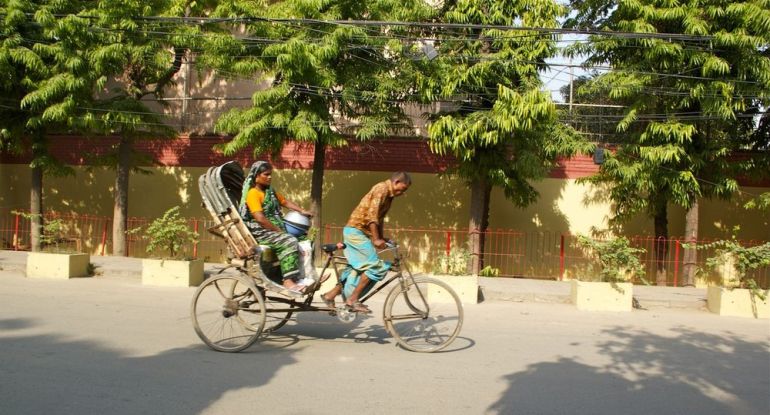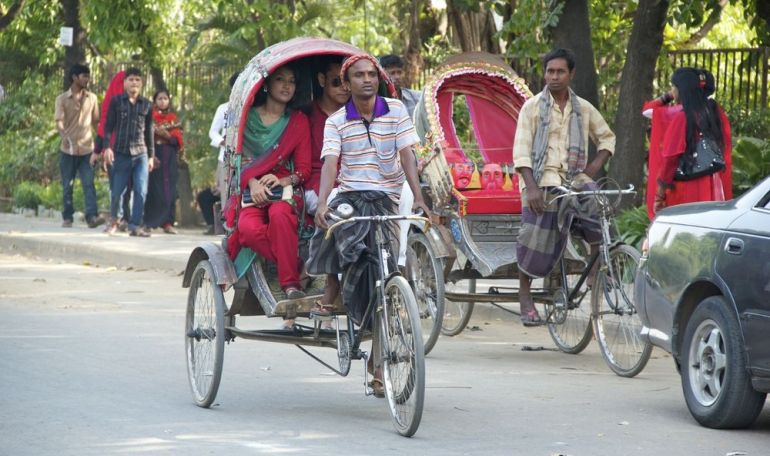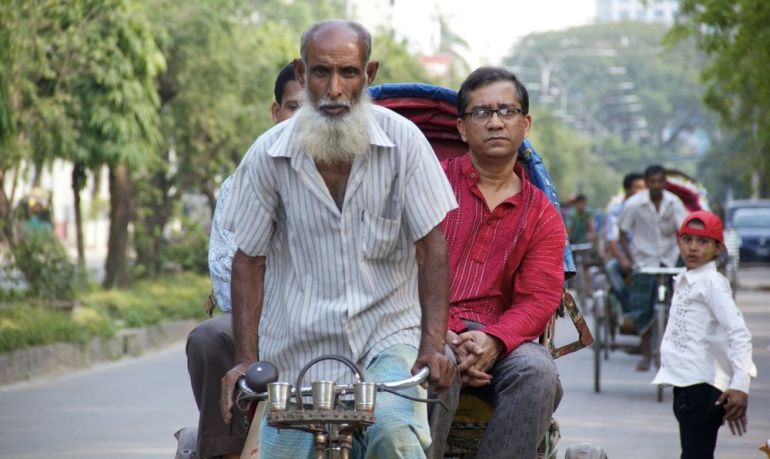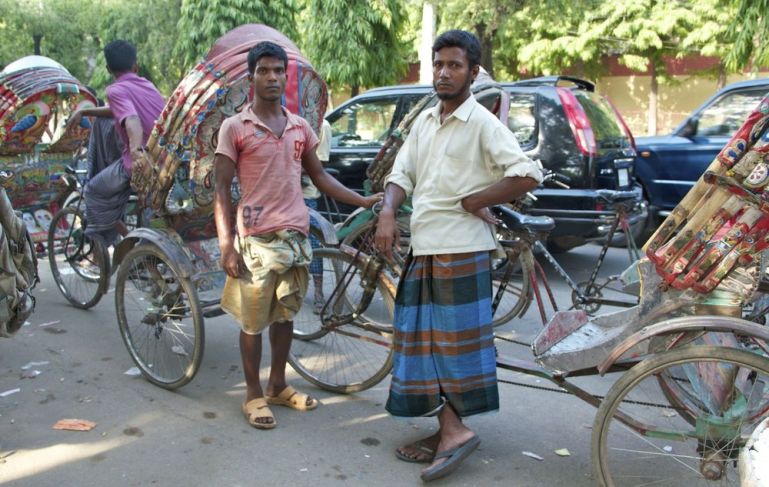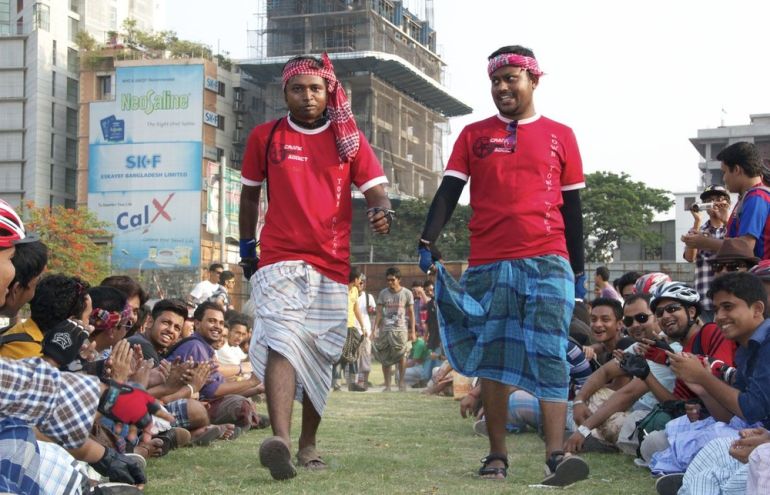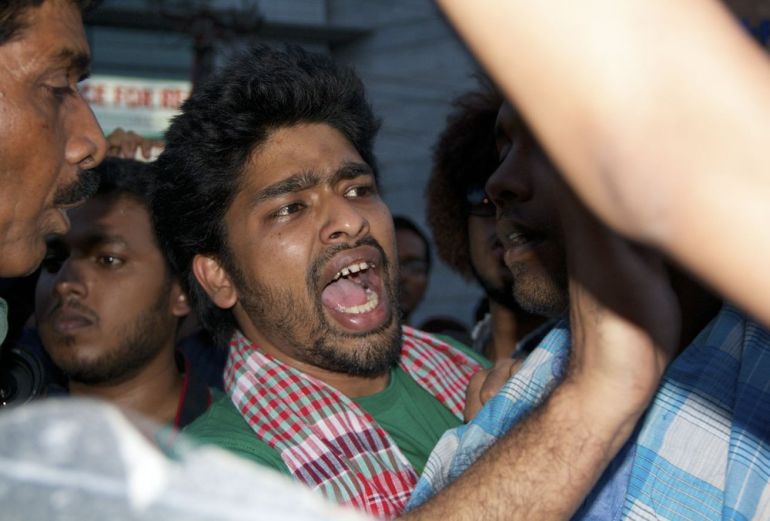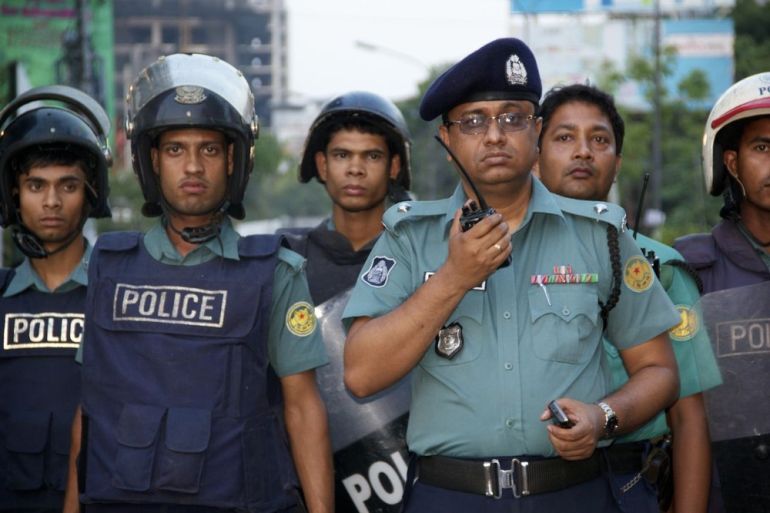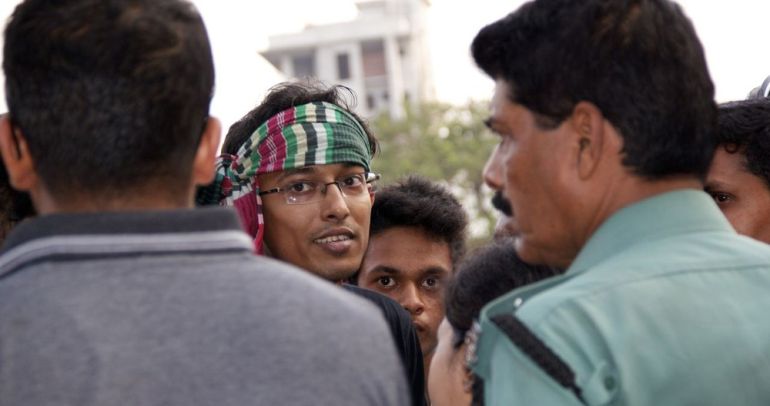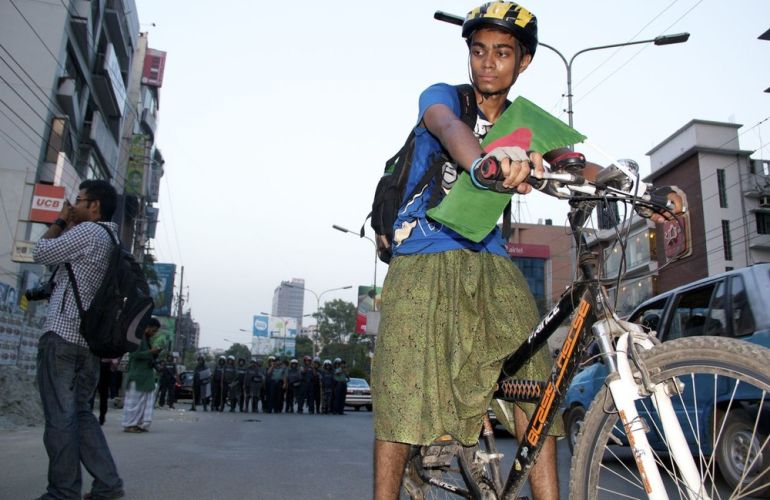In Pictures
In pictures: Dressing down in Bangladesh
Decision in upmarket Dhaka suburb to ban rickshaw drivers from wearing traditional “lungi” dress draws demonstrators.
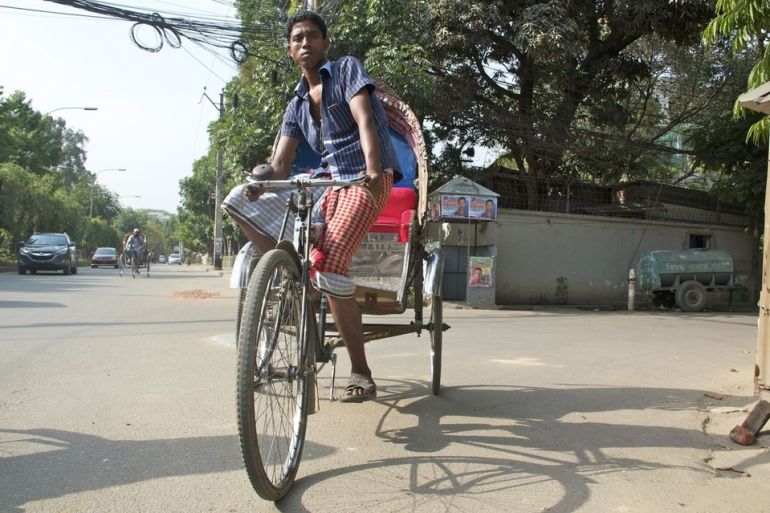
Dhaka, Bangladesh – While Bangladesh has been roiled by political protests, a demonstration of a different kind has taken place over a ban on rickshaw drivers wearing a traditional sarong-like garment that is adorned by millions throughout the country.
Crowds of young Bangladeshis filled the streets of Dhaka on Saturday flaunting colourful lungi, to protest the ban on the dress in a diplomatic quarter. Lungi are in some circles considered to be worn by the lower class.
About 400 marchers – including students, young professionals and cyclists – protested the recent ban on rickshaw drivers from wearing the lungi in Baridhara, one of the most upmarket neighbourhoods in Dhaka.
Some familiar with the garb took a traditional route, confidentially tucking and tying their lungi around their waists without underwear. While those who tried the traditional dress for the first time shyly left their undergarments on.
The peaceful rally was announced on Facebook just days after Firoz Hassan, the chairman of the Baridhara housing association, said only rickshaw pullers wearing trousers would be allowed to work the area.
When asked for an interview, Hassan’s associates said he was not available for comment.
“The decision to ban the lungi goes against our history. This is our national dress. Banning the lungi is going against our nation, period,” said Shadman Islam, a participant at the demonstration.
The lungi is the most commonly worn garb by men in Bangladesh. The traditional garment has been donned to show national expression and pride. The father of the nation, Sheikh Mujibur Rahman, wore a white lungi often to show his solidarity with the people of his homeland.
|
“The decision to ban the lungi goes against our history. This is our national dress. Banning the lungi is going against our nation, period.“ – Shadman Islam, protester |
Nafisa Binti Aziz, one of the few female demonstrators dressed in a lungi, described the ban as outright discrimination against rickshaw drivers. “If they ban it for the rickshaw pullers in Baridhara, then they should ban it for everyone,” she said.
While the ban focused on the rickshaw drivers, they themselves didn’t have much to do with the demonstration.
Moinal, a rickshaw driver with only one name, watched the protesters but said he had no idea what was going on. “I don’t know what this is, but I think it’s nice that the young generation is wearing the lungi,” he said.
Arshad Ali, a 30-year-old rickshaw driver who was also not participating in the protest, said the ban was nothing new.
“This has been going on for many years. They just don’t let you into their neighbourhood if you are not dressed nicely. You have to wear dress shirts and dress pants. I purposefully avoid that part of town for my own protection,” said Ali.
Rickshaw drivers are commonly referred to as “rickshaw-wallah” throughout South Asia.
According to a report by the Dhaka Urban Transport Network in 2011, the average income of a rickshaw-wallah is about $4 a day, excluding rental fees for the rickshaws that can cost $1 per day.
As the young demonstrators marched towards Baridhara chanting “lungi, lungi”, they were stopped by dozens of police blocking the entrance with guns and batons in hand. Protesting is not allowed in diplomatic zones, according to officers on the scene. Within an hour, the crowd had largely disappeared.
Follow Tania Rashid on Twitter: @taniarashid9
